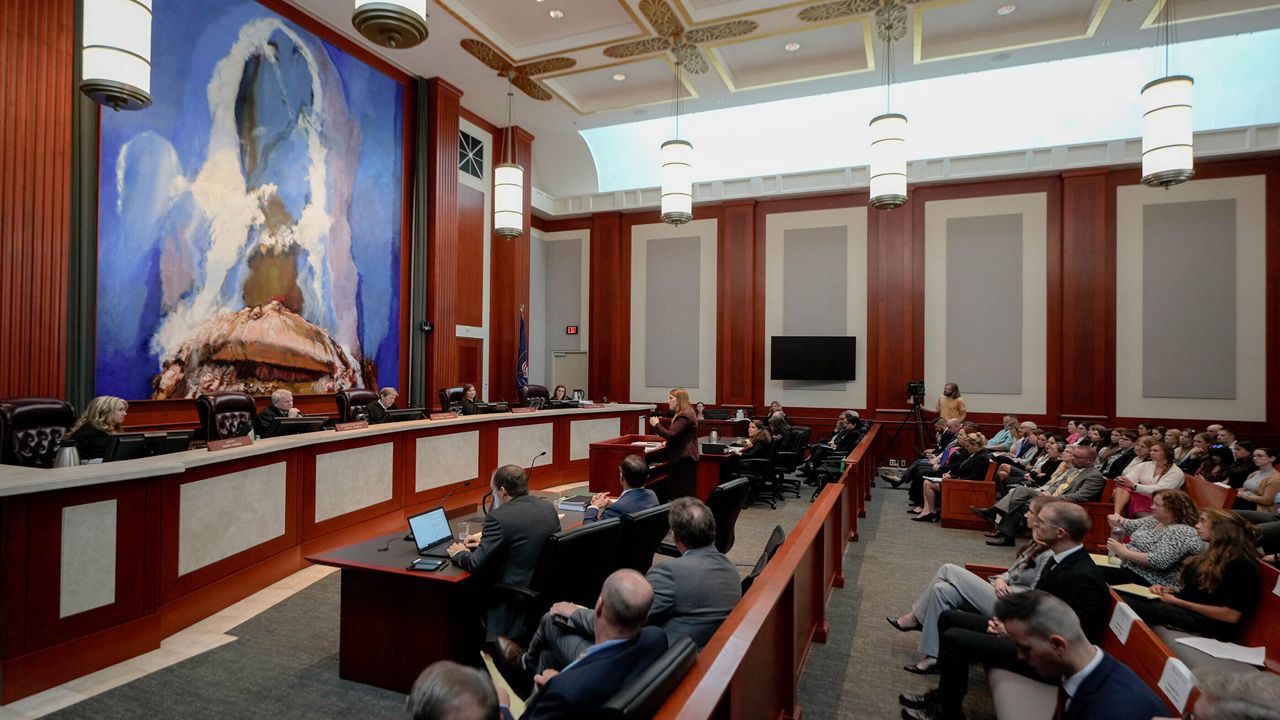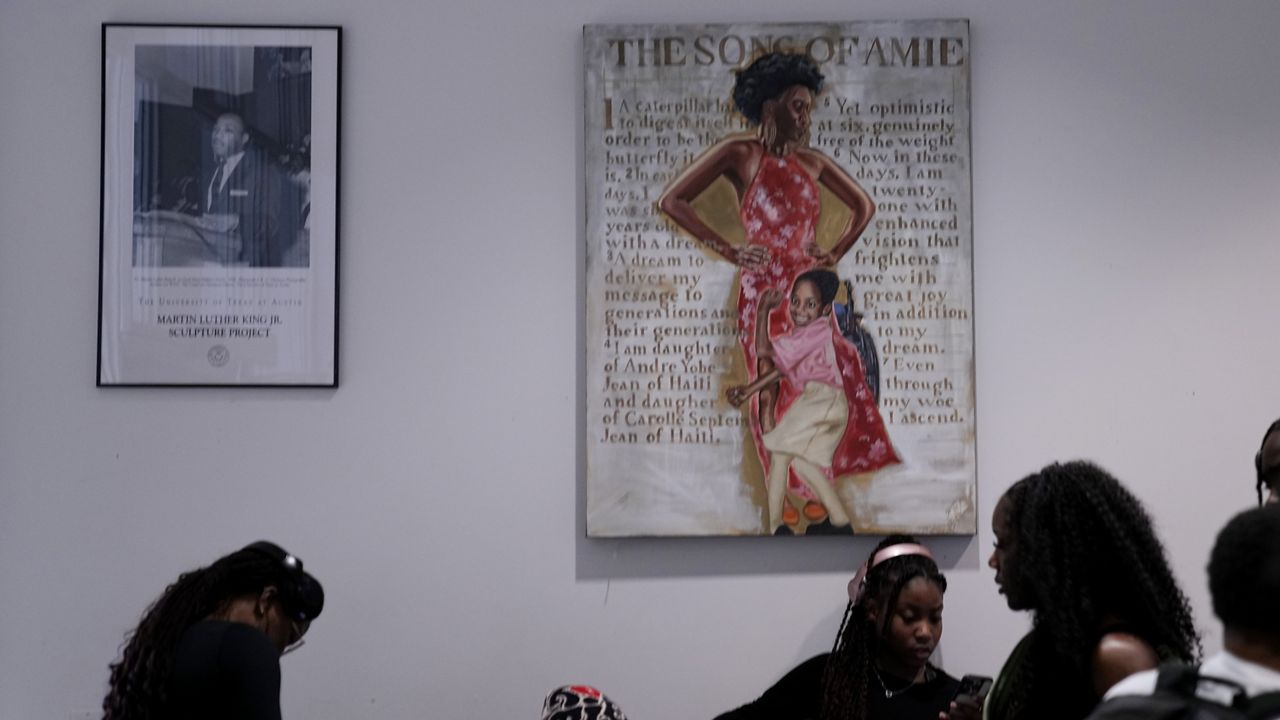SALT LAKE CITY (AP) — State courts have become hotspots in the national abortion debate as Utah and Kansas courts weigh challenges Tuesday from providers over new laws regulating the procedure, more than a year after the overturning of Roe v. Wade.
The U.S. Supreme Court's June 2022 decision in Dobbs v. Jackson transformed what was long a debate over the U.S. Constitution, immediately limiting the pathways abortion advocates could take in challenging restrictions from one state to the next.
In Kansas, legal battles over restrictions continue to unfold over how providers dispense abortion medications, what they must tell patients and a required 24-hour wait after in-person consultation. Questions about those restrictions hinge largely on the state constitution — and on the Kansas Supreme Court's 2019 decision declaring bodily autonomy a “fundamental” right included therein.
Judge K. Christopher Jayaram was expected on Tuesday afternoon to weigh the Kansas waiting period law and other requirements alread in place for more than a quarter century. The new law, which took effect July 1, requires providers to tell patients that a medication abortion can be stopped once it is started with a regimen that major medical groups call unproven and potentially dangerous. The state and the providers mutually agreed that the new law wouldn’t be enforced at least until the state court decides the matter.
In Utah, the state's attorneys want the state Supreme Court to overrule a lower court's decision to put a 2020 state law banning most abortions on hold. They argued that the “original public meaning” of the state constitution drafted during the Mormon Pioneer era in 1895 didn’t guarantee a right to abortion.
“Dobbs returned that question to the people and their elected representatives,” said Taylor Meehan, Utah's outside counsel. “There is no constitutional text, history or common law tradition that can support it, and yet th+e state’s law has been under way for one year and 28 days, allowing thousands of abortions to proceed.”
In both states, the cases reflect how the impact of the overturning of Roe remains unsettled 13 months after it became the law of the land. Republican-controlled legislatures, including in Utah and Kansas, have since pushed to tighten laws surrounding abortion and the doctors and clinics who provide them wage fierce court battles.
The fate of abortion access in Kansas has been closely watched since last year, when the electorate decisively voted in favor of a ballot initiative affirming abortion rights would remain protected — after anti-abortion groups warned that many of the state’s existing restrictions could fall. In addition to state courts, ballot initiatives have emerged as pivotal battlegrounds over abortion. A year after voters in Kansas and Kentucky voted to protect abortion rights, Ohio voters on Tuesday went to the polls to vote on requirements to amend the state's constitution and abortion advocates in Arizona have launched an initiative to protect abortion in the state's constitutiton.
Utah is one of at least five states in which laws restricting abortion have been put on hold amid litigation. The Planned Parenthood Association of Utah, which provides the majority of abortions in the state, sued last year over the 2020 “trigger law" that banned abortion with exceptions for maternal health threats or rape and incest reported to the police. Since the lower court put that law on hold last summer, another law — a 2019 ban on abortion after 18 weeks of pregnancy — took effect. Lawmakers subsequently passed additional legislation striking licensing provisions for abortion clinics from state code in an effort to phase them out.
In oral arguments on Tuesday, Utah's majority-women Supreme Court appeared skeptical of the state's claims that the lower court abused its power in putting an abortion law on hold last year. The panel probed Utah's attorneys about arguments that the state's Planned Parenthood affiliate had not raised “serious issues” enough to merit delaying the law. Many of their questions narrowed in on a 2002 abortion case that interpreted the Utah Constitution in line with the U.S. Supreme Court’s longstanding view that certain limits on abortion violated people’s fundamental rights under law.
The question at hand was whether the court's decision to affirm due process rights “in lockstep” with the U.S. Supreme Court's 1992 decision in Planned Parenthood v. Casey.
“Tell me why there aren’t serious issues here,” Justice John Pearce asked Utah's attorneys.
In the days or weeks ahead, the Utah justices are expected to decide whether to maintain the lower court's hold on abortion law or take the matter into their own hands due to the state constitutional questions at stake. Since Roe's overturning, judges elsewhere have struck down only a few such bans, including in permanently blocking a ban in South Carolina on abortions after cardiac activity can be detected.




